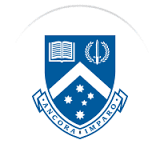Computational mechanics of
structures and materials

What is wrong withtraditional mathematics education?
There are several issues with the traditional mathematics education. First, it focuses too much on technical details. Second, the history of mathematics is completely ignored; textbook exposition usually presents a complete reversal of the usual order of developments of mathematics. The main purpose of the textbooks is to present mathematics with its characteristic logical structure and its incomparable deductive certainty. That’s why in a calculus class students are taught what is a function, then what is a limit, then what is a derivative and finally applications. The truth is the reverse: Fermat implicitly used derivative in solving maxima problems; Newton and Leibniz discovered it; Taylor, Bernoulli brothers, Euler developed it; Lagrange characterized it; and only at the end of this long period of development, that spans about two hundred years, did Cauchy and Weierstrass define it. Third, there is little opportunity for students to discover (rediscover to be exact) the mathematics for themselves. Definitions, theorems are presented at the outset, the students study the proofs and do applications.
What can we do about it?
In my book "Mathematics for engineers and scientists: Concepts, Applications, and History", (link) I present a new way to learn mathematics. The best way to learn maths is to self study, with your own pace along with good books. During the last few years I have self studied mathematics from scratch up to university level, and the result is the book that I mentioned. The basic principle is now throw any maths concept to the face of the students, but to explain why mathematicians need to come up with a certain maths concept, and how they define such concept in a mathematical way.
Whether you're a high school student or a college student, if you want to learn maths in a less frustrating way, this book is for you. It provides guidelines or tips to learn maths, it tells you how to read maths books, how to do maths. It provides the historical context in which a math concept was developed, and it tells stories of mathematicians--the mathematicians who developed the maths that we're learning. It presents jokes about maths and mathematicians so that we can understand how mathematicians work and think.
The book was written in the spirit that what one fool can do, another can. A guy in the early of his 40s with a job to take care of his family could learn maths, any student can and can do better.
Why we need to learn maths?
We can just learn maths because it is beautiful, just as we appreciate art. Or we can learn maths to understand our universe as the universe speaks in the language of mathematics. One example shows you why. If I tell you that someone is attractive, you might not agree with you, but if I am telling you that there are four people in a room, you are 100% with me. Why? Because numbers, which are part of maths, are universal. People from different cultures, of different colours can understand numbers.
Scientists use mathematics to reveal the secrets of virtually everything in our universe. Engineers use maths to build machines and infracstructures.